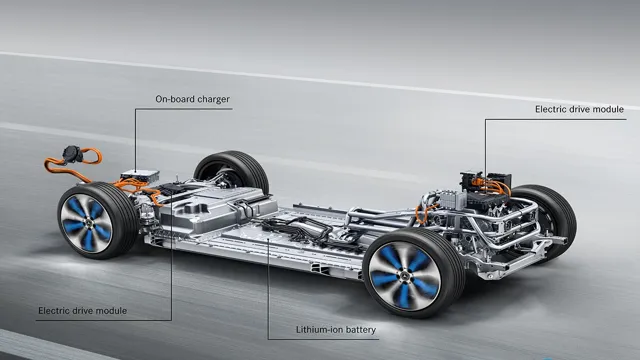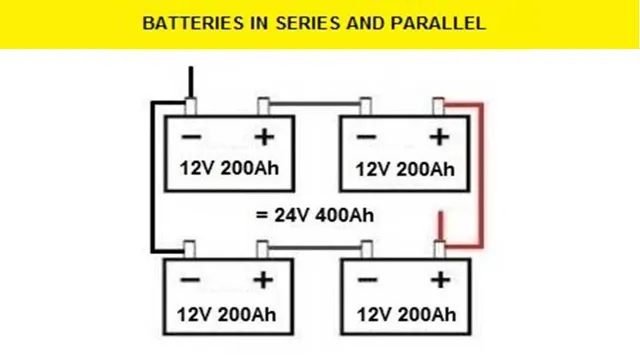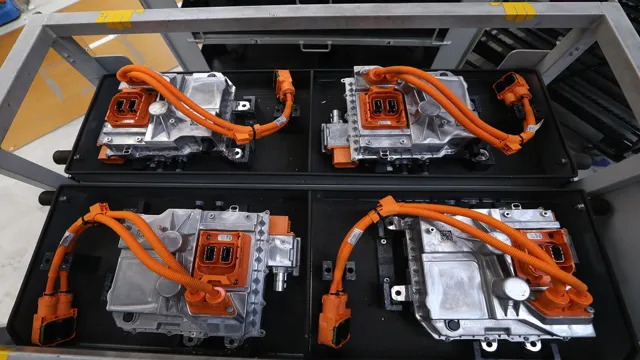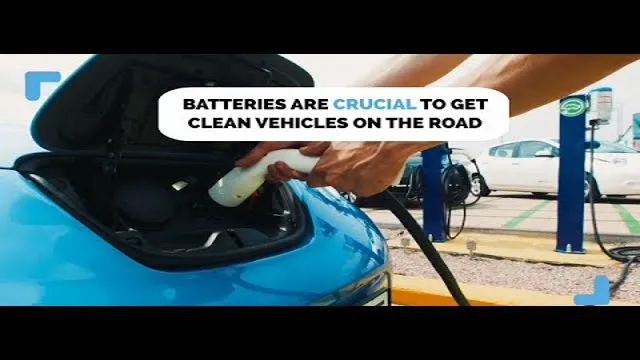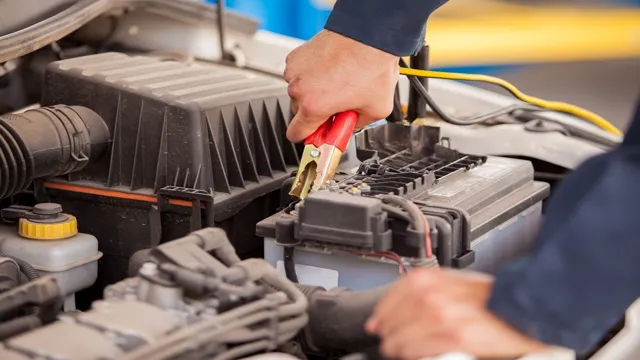Revolutionizing the Automotive Industry: The Power of Li-ion Batteries for Electric Cars
Electric cars are becoming more and more popular thanks to their eco-friendliness and efficiency. However, a crucial component of these electric vehicles is the battery that powers them. Lithium-ion batteries are the most common type of battery found in electric cars, capable of holding more energy than their predecessors and lasting longer.
But how exactly do these batteries work, and what sets them apart from other types of batteries? In this blog, we’ll delve into the fascinating world of electric car batteries and explore the inner workings of Li-ion batteries. We’ll go over how they function, the advantages they have over other types of batteries, and how they’ve revolutionized the electric car industry. By the end of this blog, you’ll have a deeper understanding of how the car you drive every day functions on a fundamental level.
So buckle up and let’s dive into the electrifying world of Li-ion batteries!
Overview of Li-ion Batteries
Electric cars are becoming increasingly popular, thanks to their eco-friendliness and fuel efficiency. One of the critical components allowing electric cars to function is the lithium-ion battery. These batteries are lightweight, rechargeable, and have a high energy density, making them ideal for electric cars.
They work by storing electrical energy in the form of chemical energy within the battery’s cells. During discharge, the lithium ions move from the negative electrode to the positive electrode, creating a flow of electrons that can power an electric motor. They are also incredibly versatile and can be found in many other consumer electronics such as laptops and smartphones.
Although the production of Li-ion batteries can have an environmental impact, their long lifespan and ability to store energy from renewable sources make them a promising solution to the world’s energy needs.
What is a Li-ion Battery?
Li-ion Battery Li-ion batteries, short for lithium-ion batteries, are a type of rechargeable battery commonly used in portable electronics, electric vehicles, and even spacecraft. What makes Li-ion batteries unique is their high energy density, meaning they can store more electrical energy in a smaller size compared to other types of batteries. This is due to the use of lithium ions, which can move between the positive and negative electrodes of the battery during charging and discharging cycles.
Li-ion batteries also have a longer lifespan compared to other rechargeable batteries, making them an excellent choice for equipment that requires frequent charging. However, Li-ion batteries can be prone to thermal runaway, a rapid and uncontrollable increase in temperature that can lead to an explosion or fire. To prevent this, modern Li-ion batteries have safety features such as a battery management system and thermal sensors.
Despite their potential risks, Li-ion batteries have revolutionized the way we use portable devices and are essential to the development of sustainable transportation and energy storage.
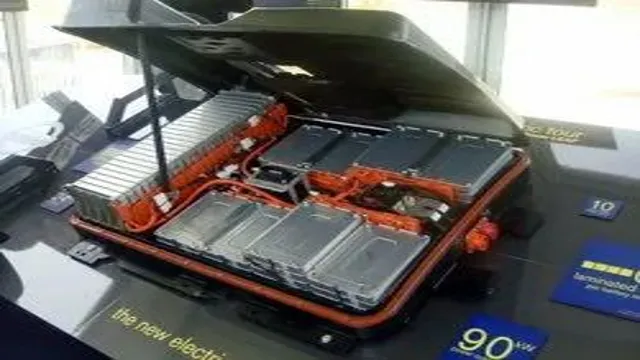
How Do They Work?
Li-ion batteries are a type of rechargeable battery that has gained widespread popularity in recent years. These batteries work by storing energy in a chemical form that can be converted back into electrical energy as needed. Li-ion batteries consist of several components, including a cathode, an anode, and an electrolyte.
When the battery is charged, lithium ions are transferred from the cathode to the anode through the electrolyte. When the battery is discharged, the process is reversed. Li-ion batteries are known for their high energy density, which means that they can store a lot of energy in a small package.
Additionally, they are lightweight and have a long cycle life, meaning that they can be charged and discharged many times before their performance begins to degrade. Li-ion batteries are commonly used in portable electronics, such as cell phones and laptops, as well as in electric vehicles and renewable energy storage systems.
Advantages of Using Li-ion Batteries in Electric Cars
Electric car manufacturers have shifted their focus towards Li-ion batteries due to their numerous advantages over traditional lead-acid batteries. One major advantage of Li-ion batteries is their superior energy density, allowing them to store more energy in a smaller and more lightweight package. This not only improves the range of electric cars but also reduces the overall weight, making electric vehicles more efficient.
Additionally, Li-ion batteries have a longer lifespan compared to lead-acid batteries, requiring fewer replacements and reducing maintenance costs for the user. Li-ion batteries also have a faster charging time, allowing users to spend less time at charging stations and more time on the road. With these advantages, it’s no surprise that Li-ion batteries have become the go-to power source for electric cars, paving the way towards a more sustainable and efficient future.
Higher Energy Density
Electric cars have become increasingly popular in recent years, and one of the key factors that have contributed to their success is the use of Li-ion batteries. These batteries offer several advantages over traditional lead-acid batteries, including higher energy density. This means that Li-ion batteries can store more energy in a smaller, lighter package, resulting in improved performance and longer driving range for electric cars.
With a higher energy density, drivers can enjoy a smoother, more efficient driving experience that requires fewer charging stops. Additionally, Li-ion batteries are more environmentally friendly since they produce fewer emissions and can be recycled. Overall, the use of Li-ion batteries in electric cars is a major step forward in reducing carbon emissions and creating a more sustainable future.
Longer Lifespan
One of the most significant advantages of using Li-ion batteries in electric cars is their longer lifespan when compared to other battery technologies. Li-ion batteries can last for several thousand cycles of charge and discharge, meaning they can power an electric car for years. This not only saves money in the long run but also reduces waste as the batteries are less likely to need replacement.
Additionally, the longer lifespan of Li-ion batteries means that electric cars can travel further on a single charge, making them more practical for long-distance travel. In summary, Li-ion batteries are an excellent choice for electric cars due to their longer lifespan, cost-effectiveness, and environmental benefits.
Fast Charging Times
Li-ion batteries are becoming increasingly popular for use in electric cars due to their high energy density, which allows them to store a lot of energy in a relatively small space. One of the main advantages of using Li-ion batteries in electric cars is the fast charging times they offer. With many electric cars taking hours to charge fully, the ability to charge quickly is a significant selling point for Li-ion batteries.
This fast charging time is due to the battery’s ability to charge quickly at the beginning of the charging cycle when there is more capacity to fill. This means that Li-ion batteries can be quickly topped up, allowing drivers to get back on the road without having to wait around for hours. Overall, the use of Li-ion batteries in electric cars makes charging more efficient, relieving some of the anxieties around long distance travel.
Challenges of Li-ion Batteries for Electric Cars
Li-ion batteries have become a popular choice for electric cars, but they present several challenges that need to be addressed. One major issue is the limited range of these batteries before they need to be recharged. This can lead to anxiety for drivers, especially when there are no charging stations nearby.
Another challenge is the high cost of producing these batteries, which can make electric cars more expensive than their gasoline counterparts. Additionally, the environmental impact of manufacturing these batteries is a concern, as it requires the use of rare earth metals and other scarce resources. Nonetheless, advancements in technology are steadily improving the capabilities and affordability of li-ion batteries, and we can expect that they will continue to be a major player in the future of electric cars.
Safety Concerns
Electric cars have become popular in recent years due to their high efficiency and low carbon footprint. However, the challenge lies in the safe and reliable usage of Li-ion batteries. Li-ion batteries are known for their high energy density, but they also come with safety concerns such as overheating, thermal runaway, and explosion.
These issues can be caused by any damage to the battery or by a manufacturing defect. Despite advancements in battery technology, safety remains a top priority for electric car manufacturers. They employ various safety measures such as a battery management system, cooling mechanisms, and robust battery casings to prevent any potential hazards.
It’s important to understand that Li-ion batteries can pose risks, but proper handling and maintenance can mitigate these concerns. In the end, the benefits of electric cars outweigh the challenges, and efforts are continuously being made to improve Li-ion battery safety for a better driving experience.
High Cost
One of the biggest challenges that come with Li-ion batteries for electric cars is their high cost. In fact, the battery pack can account for more than half of the total cost of an electric vehicle. This high cost is due to the expensive raw materials used to make Li-ion batteries, such as lithium, nickel, and cobalt.
Additionally, the manufacturing process itself is complex and requires specialized equipment, which further drives up the cost. However, it’s important to note that the cost of Li-ion batteries has been steadily decreasing in recent years, thanks in part to advancements in technology and economies of scale as more electric vehicles are produced. As a result, the price of electric cars has also been falling, making them more accessible to a wider range of consumers.
Despite this progress, there’s still a long way to go before Li-ion batteries become cost-competitive with traditional internal combustion engines. But with continued investment in research and development, as well as government incentives to support the transition to electric vehicles, it’s likely that we’ll see even more improvements in the affordability of Li-ion batteries in the years to come.
Future of Li-ion Batteries in Electric Cars
The future of electric cars heavily relies on the development and improvement of lithium-ion (li-ion) batteries. These batteries have revolutionized the automotive industry, offering a high energy density, long lifespan, and quick charging capability. Currently, li-ion batteries are the preferred choice for electric car manufacturers, but research is underway to further increase their efficiency and durability.
One major concern is reducing the risk of overheating, which can lead to explosions or fires. However, advancements in nanotechnology and solid-state batteries are showing promising results in addressing these safety issues. In the future, we can expect li-ion batteries to become even more efficient, lighter, and cheaper, further promoting the widespread adoption of electric vehicles and a decreased reliance on fossil fuels.
Conclusion
In conclusion, the electric car li-ion battery is like the superhero of the automotive industry. With its ability to store vast amounts of energy, this powerful technology is paving the way for clean and sustainable transportation. Just like any superhero, the li-ion battery has its strengths and weaknesses, but with continued research and development, it is sure to become even more efficient and reliable.
So, if you’re in the market for a new car, why not become a superhero yourself by investing in an electric vehicle with a li-ion battery? You’ll be doing your part to save the planet and impress all your friends with your clever and witty transportation choice.
FAQs
What is an electric car li-ion battery?
An electric car li-ion battery is a rechargeable battery used to power electric vehicles.
How does a li-ion battery work in an electric car?
In an electric car, the li-ion battery converts stored chemical energy into electrical energy to power the vehicle.
What is the lifespan of a typical electric car li-ion battery?
The lifespan of a typical electric car li-ion battery is around 8-10 years, with the potential to last longer with proper maintenance and usage.
What are the benefits of using a li-ion battery in an electric car?
The benefits of using a li-ion battery in an electric car include high energy density, longer driving range, and lower greenhouse gas emissions compared to traditional gasoline-powered vehicles.
